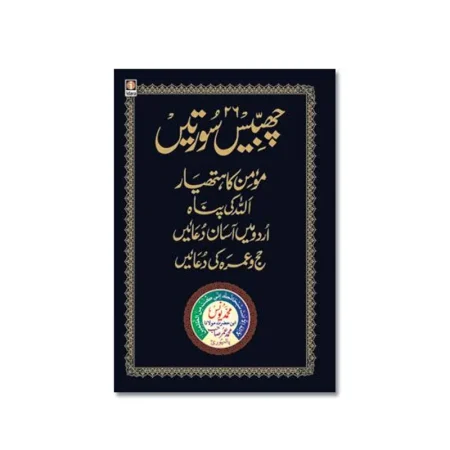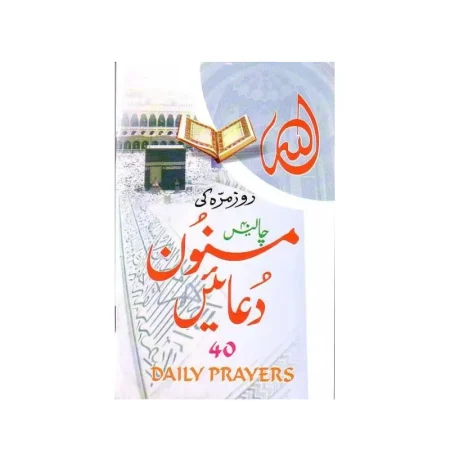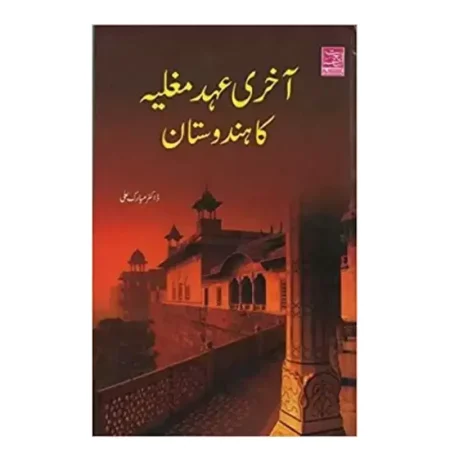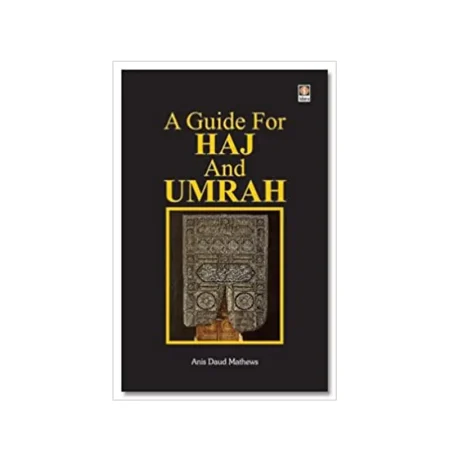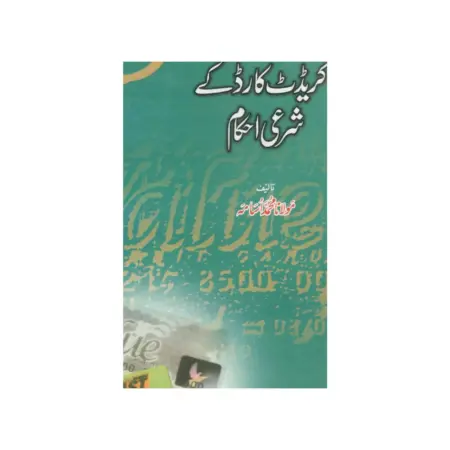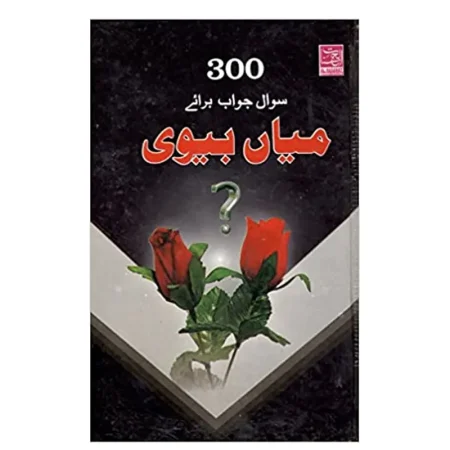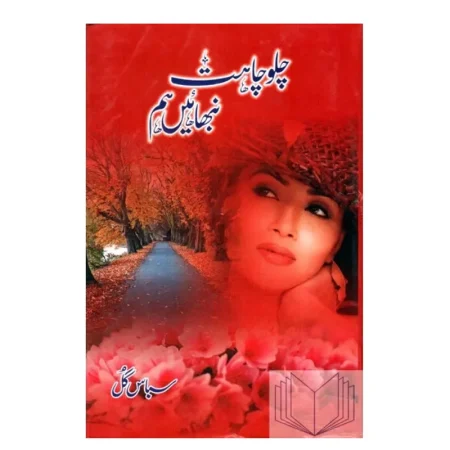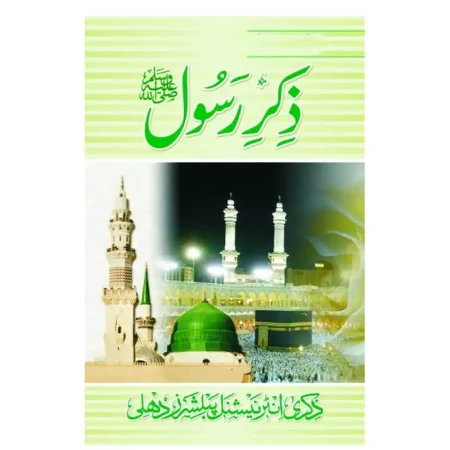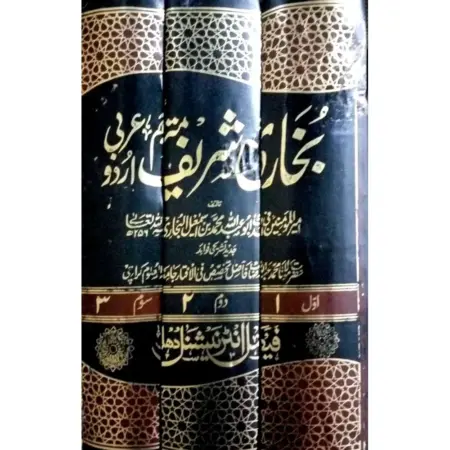Purdah Maulana Sayyid Abul Ala Maududi Mmi English
₹144.00
- purdah-maulana-sayyid-abul-ala-maududi-mmi-english
- Purdah Maulana Sayyid
- Name: Purdah And The Status of Women In Islam
- Writer : Maulana Sayyid Abul Ala Maududi
- Publisher: Mmi
- Language: English

Purdah Maulana Sayyid Abul Ala Maududi Mmi English
₹144.00Request a Call Back
This contact form is available only for logged in users.
- Delivery & Return
How Does The Delivery Process Work ?
- Once Our System Processes Your Order, Your Products Are Inspected Thoroughly To Ensure They Are In Perfect Condition.
- After They Pass Through The Final Round Of Quality Checks, They Are Packed And Handed Over To Our Trusted Courier Partners.
- Our Delivery Partners Then Bring The Package To You At The Earliest Possibility. In Case, They Are Unable To Reach Your Provided Address Or At A Suitable Time, They Will Contact You To Resolve The Issue.
How Are Items Packed ?
We Package Our Products In Corrugated Boxes, Which Are Covered With 3 Layer Protection. Each Individual Product Is Packed In Bubble Wrap While Fragile Items Like Bottles Are Safely Secured With Additional Bubble Wrap. We Pride Ourselves On The Quality Of Our Packaging.What Is The Range Of Locations To Which Daarul Kitab & Islamic Store Ships It’s Products ?
We Shipped Our Products Pan India!My Order Has Been Shipped, How Can I Track It ?
Once Your Order Has Been Dispatched, You Will Receive An Email And SMS With Tracking Details.You Can Track The Status Of Your Order Within 24 – 48 Hours After Your Order Is Dispatched From Our Warehouse.Following Are Some Of Our Trusted Courier Partners: eKart Logistics, BlueDart, Delhivery, Xpressbees, Ecom Express, DTDC & ShadowfaxWhat Is The Estimated Delivery Time ?
It Takes 3-7 Business Days To Deliver The Order Once Order Has Been Dispatched.Though We Keep 95% Of Our Catalog In Our Inventory, Certain Products Need To Be Sourced Directly From The Brand Itself So That We Can Live Up To Our Promise Of Providing Fresh, Non-expired Products.Are There Any Shipping Charges Applicable To My Order ?
We Have Different Shipping Charges For Different Zones Which Start From 60₹ To 100₹ Is Applied To All Orders Below ₹1999, While There Is Free Shipping For All Orders Above ₹1999Note: Please Take A Video/Photos While Opening A Order You Received We Need It If Anything Goes Wrong With You Order Between Journey Of Our Warehouse To Your Doorstep, If You Find Order Is Damaged Or Intact Please Do Not Accept The Order Delivery .
Disclaimer: Any Complaints Related To Product/Delivery Should Be Brought To Our Notice Within 48 Hours From The Time Of Delivery.
Help
Give us a shout if you have any other questions and/or concerns. Email: support@daarulkitab.com Phone: +918755553311 WhatsApp: +918755553311 - Ask a Question

Purdah Maulana Sayyid Abul Ala Maududi Mmi English
₹144.00Ask a Question
This contact form is available only for logged in users.
Purdah Maulana Sayyid
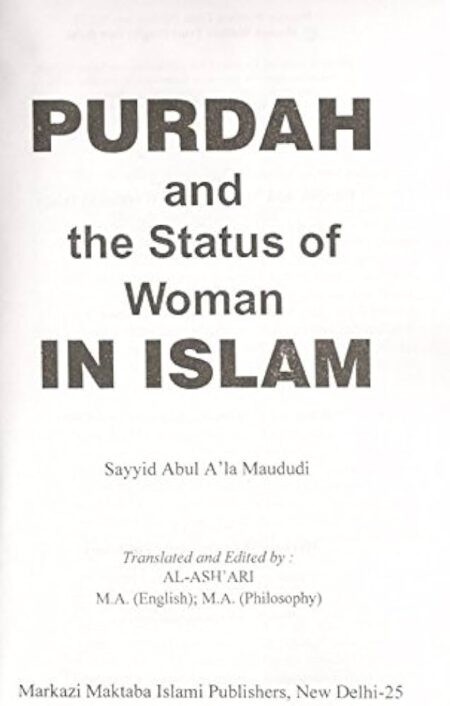
Purdah Maulana Sayyid Abul Ala Maududi Mmi English
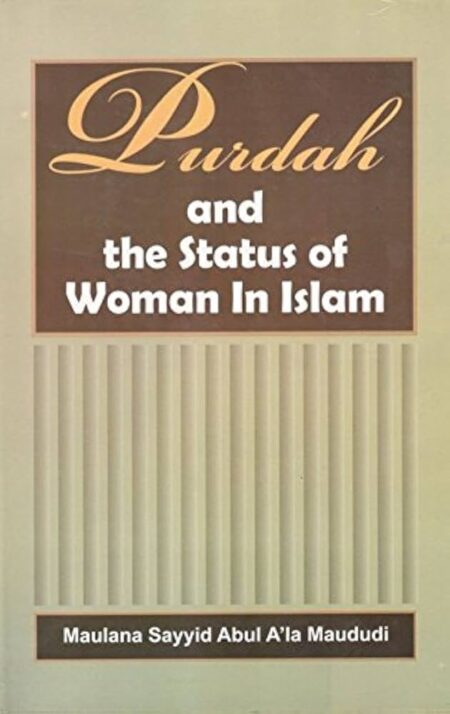
Purdah Maulana Sayyid Abul Ala Maududi Mmi English
The modern world has gradually headed away from the Way of Nature towards unnatural paths that are inevitably leading to the annihilation of the human race itself. The moral concepts which the Western world adopted a century and a half ago have already resulted in the disruption of family life, and produced licentiousness and sexual anarchy to the extent hitherto unknown in history. The nudist trends in the West, manifesting themselves in the “Bikini” and the “birthday suit”, should surprise nobody as they are the logical outcome of the so-called movements launched for the rights and emancipation of woman.
Woman in Islam” is a seminal work by Maulana Sayyid Abul A’la Maududi, a prominent Islamic scholar and thinker. This book delves into the concept of purdah (veiling) and provides an in-depth analysis of the status and role of women in Islamic society. Maududi’s work is both a scholarly examination and a response to contemporary debates about women’s rights and their place in the modern world.
Introduction
The book begins with an introduction that outlines the purpose and scope of the study. Maulana Maududi sets the stage by discussing the historical context of purdah and its significance in Islamic tradition. He emphasizes the importance of understanding purdah not just as a physical practice but as a comprehensive code of conduct that encompasses modesty, behavior, and social interactions.
Historical Context
Maududi provides a historical overview of the practice of purdah, tracing its origins to pre-Islamic times and its evolution through various Islamic societies. He argues that purdah has been a fundamental aspect of Muslim culture and has played a crucial role in preserving the moral and social fabric of the community.
Islamic Perspective on Purdah
In this section, Maududi delves into the Quranic injunctions and Hadiths that pertain to purdah. He interprets key verses and sayings of the Prophet Muhammad (PBUH) to elucidate the Islamic viewpoint on modesty and veiling. Maududi contends that purdah is not merely a cultural practice but a religious obligation that is deeply rooted in Islamic teachings.
The Role of Women in Islam
Maududi explores the role of women in Islamic society, challenging contemporary misconceptions and stereotypes. He argues that Islam accords women a high status and provides them with rights and responsibilities that ensure their dignity and protection. Maududi discusses various aspects of women’s lives, including their roles as daughters, wives, mothers, and members of the community.
Purdah in Modern Society
Maulana Maududi addresses the challenges and criticisms faced by the practice of purdah in the modern world. He acknowledges the changing social dynamics and the pressures of modernization but maintains that purdah remains relevant and essential for maintaining moral and social order. Maududi provides practical guidelines for implementing purdah in contemporary society, emphasizing the need for education and awareness.
Comparative Analysis
The book includes a comparative analysis of the status of women in different cultures and religions. Maududi contrasts the Islamic approach to women’s rights with that of Western societies, highlighting the differences in values and principles. He argues that the Western model of women’s liberation often undermines their dignity and fails to provide genuine empowerment.
Conclusion
In the concluding section, Maulana Maududi summarizes his key arguments and reiterates the importance of purdah in preserving the Islamic way of life. He calls upon Muslim women to embrace their religious identity and take pride in their role as custodians of moral values. Maududi emphasizes that true liberation for women lies in adhering to Islamic principles and seeking fulfillment through spiritual and intellectual growth.
Critical Reception
“Purdah and the Status of Woman in Islam” has been widely read and discussed in both Muslim and non-Muslim circles. The book has received praise for its scholarly rigor and insightful analysis, but it has also faced criticism for its conservative stance on women’s issues. Critics argue that Maududi’s interpretation of purdah is too rigid and fails to accommodate the diverse experiences of Muslim women.
Impact and Legacy
Despite the criticisms, Maulana Maududi’s work has had a significant impact on Islamic thought and the discourse on women’s rights. The book has influenced generations of scholars and activists, prompting them to reexamine the role of women in Islamic society. Maududi’s call for a return to traditional values and his emphasis on education and moral upbringing continue to resonate with many Muslims around the world.
Personal Reflection
As a reader, engaging with “Purdah and the Status of Woman in Islam” offers a valuable opportunity to gain a deeper understanding of Islamic perspectives on gender and modesty. Whether one agrees or disagrees with Maududi’s views, the book serves as a thought-provoking contribution to the ongoing dialogue about women’s rights and their place in the modern world.
Conclusion
In conclusion, “Purdah and the Status of Woman in Islam”
Related Products
- 26 Chabbis Surtein Momin Ka Hathyar Allah Ki Panah Muhammad Yunus Idara (Urdu)
4 in stock
- 40 Daily Prayers (Ibs) English/Arabic
1 in stock
- Aakhri Ahd-E-Mughliya Ka Hindustan Dr Mubarak Ali Al Hasanat (Urdu)
2 in stock
- Paperback
- Publisher: Idara impex (2006)
- Language: English
3 in stock
2 in stock
1 in stock
- Hardcover:?350 pages
- Publisher:?Al Hasanat Books Pvt. Ltd.; 1 edition (2015)
- Language:?Urdu
1 in stock
- Chalo Chahat Nibhae Hum ( Sabas Gul ) Pak Urdu
1 in stock
- Zikr-E-Rasool S.A.W. ( Maulana Abdul Majid ) Lucknow Urdu
6 in stock
1 in stock
1 in stock
- A Politico-Cultural Study Of The Great Mughuls (1526-1707) Dr. Muhammad Qamaruddin Adam Publishers (English)
1 in stock



